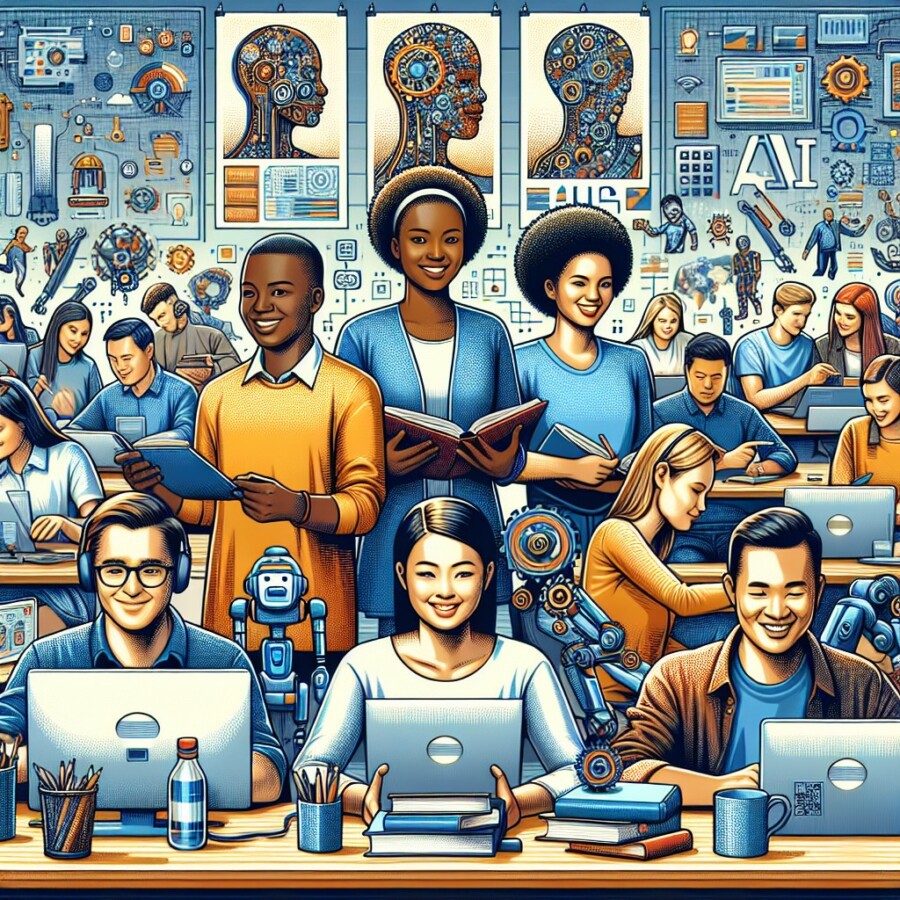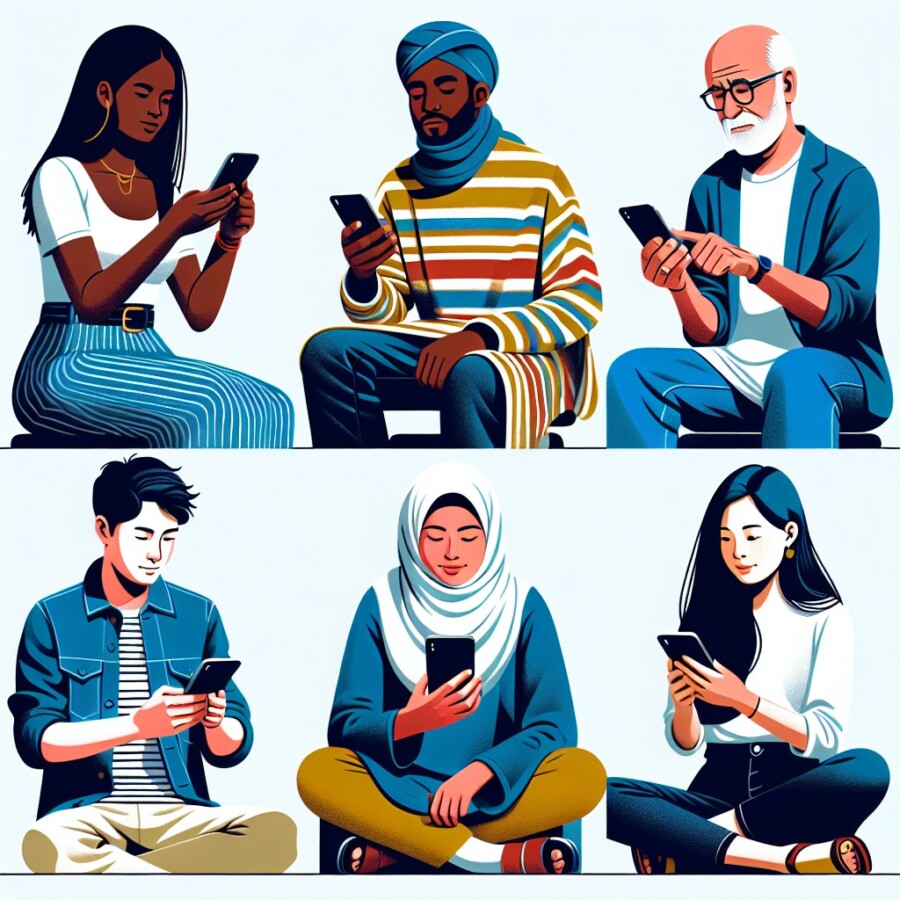Playing a musical instrument or singing might be good for older people’s brains, a study by UK researchers found. The study, published in the International Journal of Geriatric Psychiatry, says that activities like playing instruments or reading music can help keep memory and thinking skills sharp as people get older. The research looked at over 1,100 adults aged 40 and up, with an average age of 68, to see how music affects the brain as we age.
The study, led by scientists at the University of Exeter, compared the brain data of people who included music in their lives with those who didn’t. They discovered that playing musical instruments, especially keyboards like the piano, had the most positive impact on brain health. Singing also showed benefits, likely because of the social side of making music with others. Just listening to music didn’t seem to have the same brain-boosting effects as actively making music.
Prof Anne Corbett, the study’s main author, stressed the importance of challenging the brain by learning to read music, which she compared to picking up a new language. While the study didn’t look into the benefits of starting music later in life, Prof Corbett suggested it could be really helpful based on what we know. Encouraging older adults to rediscover their love for music could be a great way to keep their brains healthy as they grow older.
Original news source: Playing a musical instrument good for brain health in later life – study (BBC)
🎧 Listen:
Slow
Normal
Fast
📖 Vocabulary:
| 1 | geriatric | Relating to old people, especially with regard to their healthcare. |
| 2 | instruments | Tools or devices, especially ones that produce music. |
| 3 | memory | The ability to remember information, experiences, and people. |
| 4 | research | Detailed study of a subject to discover new information. |
| 5 | keyboards | Musical devices played by pressing a series of keys, such as a piano. |
| 6 | benefits | Advantages or positive effects something has. |
| 7 | social | Involving activities with other people. |
| 8 | listening | The act of paying attention to sounds. |
| 9 | challenging | Requiring much effort or ability to overcome difficulties. |
| 10 | language | A system of communication used by a particular country or community. |
| 11 | rediscover | To find enjoyment or interest in something again after forgetting or ignoring it for a long time. |
| 12 | healthy | In good physical or mental condition; free from illness or injury. |
| 13 | singing | The act of producing musical sounds with the voice. |
| 14 | brains | The organ inside the head that controls thought, memory, feelings, and activity. |
| 15 | actively | Doing something with energy and attention, not just passively. |
Group or Classroom Activities
Warm-up Activities:
– News Summary
Instructions: Have students read the article individually and then summarize the main points in their own words. Then, have them share their summaries with a partner and compare their answers.
– Opinion Poll
Instructions: Divide the class into pairs or small groups. Have students discuss and share their opinions on the benefits of playing a musical instrument or singing for older people’s brains. Each group should then choose a spokesperson to present their group’s opinions to the class.
– Vocabulary Pictionary
Instructions: Write down key vocabulary words from the article on separate pieces of paper and put them in a bag or hat. Divide the class into two teams. One student from each team will take turns picking a word from the bag and drawing it on the board. The rest of their team will try to guess the word. The team with the most correct guesses wins.
– Speed Summarizing
Instructions: Give each student a copy of the article. Set a timer for 3 minutes and have students read the article as quickly as possible. After the time is up, have them summarize the article in one or two sentences. Then, have them pair up with a partner and take turns sharing their summaries.
– Future Predictions
Instructions: Have students imagine that they are researchers conducting a follow-up study on the benefits of playing a musical instrument or singing for older people’s brains. In pairs or small groups, have them discuss and make predictions about what they think the results of the study would be. Each group should then share their predictions with the class.
🤔 Comprehension Questions:
1. What did the study by UK researchers find about playing a musical instrument or singing?
2. How can activities like playing instruments or reading music help older people’s memory and thinking skills?
3. Who did the study look at to see how music affects the brain as we age?
4. What did the brain data comparison in the study reveal about the impact of playing musical instruments?
5. Why did singing also show benefits in the study?
6. What did the study find about just listening to music?
7. According to Prof Anne Corbett, why is it important to challenge the brain by learning to read music?
8. What did Prof Corbett suggest about the benefits of starting music later in life?
Go to answers ⇩
🎧✍️ Listen and Fill in the Gaps:
Playing a (1)______al instrument or singing might be good for older (2)______’s brains, a study by UK researchers found. The study, published in the International Journal of Geriatric Psychiatry, says that activities like playing instruments or reading music can help keep (3)______ and thinking skills (4)______ as people get older. The research looked at over 1,100 (5)______ aged 40 and up, with an average age of 68, to see how music affects the brain as we age.
The study, led by (6)______ at the University of Exeter, compared the brain data of people who (7)______ music in their lives with those who didn’t. They discovered that (8)______ musical instruments, especially keyboards like the piano, had the most positive (9)______ on brain health. Singing also showed (10)______, (11)______ because of the (12)______ side of making music with others. Just listening to music didn’t seem to have the same brain-boosting effects as actively making music.
Prof Anne Corbett, the study’s main author, stressed the importance of challenging the brain by learning to read music, which she compared to picking up a new language. While the study didn’t look into the benefits of starting music later in life, Prof (13)______ suggested it could be really (14)______ based on what we know. Encouraging (15)______ adults to rediscover their love for music could be a great way to keep their (16)______ healthy as they grow older.
Go to answers ⇩
💬 Discussion Questions:
Students can ask a partner these questions, or discuss them as a group.
1. What is the main finding of the study about playing musical instruments or singing?
2. How would you feel if you were told that playing a musical instrument or singing can help keep your memory and thinking skills sharp as you get older?
3. Do you like listening to music? Why or why not?
4. Do you think playing a musical instrument can be challenging? Why or why not?
5. What is the social side of making music with others?
6. How would you feel if you were told that just listening to music doesn’t have the same brain-boosting effects as actively making music?
7. Do you think learning to read music is similar to picking up a new language? Why or why not?
8. How would you feel if you were encouraged to rediscover your love for music as you grow older?
9. What is a brain-boosting effect?
10. How would you feel if you were given the opportunity to learn to play a musical instrument? Why or why not?
11. Do you think playing a musical instrument can be a good way to challenge your brain? Why or why not?
12. How would you feel if you were told that playing the piano has the most positive impact on brain health?
13. Do you like singing? Why or why not?
14. How would you feel if you were told that playing musical instruments or reading music can help keep your brain healthy as you age?
15. Do you think it’s important to keep your brain healthy as you grow older? Why or why not?
Individual Activities
📖💭 Vocabulary Meanings:
Match each word to its meaning.
Words:
1. geriatric
2. instruments
3. memory
4. research
5. keyboards
6. benefits
7. social
8. listening
9. challenging
10. language
11. rediscover
12. healthy
13. singing
14. brains
15. actively
Meanings:
(A) To find enjoyment or interest in something again after forgetting or ignoring it for a long time.
(B) A system of communication used by a particular country or community.
(C) Tools or devices, especially ones that produce music.
(D) Doing something with energy and attention, not just passively.
(E) Musical devices played by pressing a series of keys, such as a piano.
(F) In good physical or mental condition; free from illness or injury.
(G) Detailed study of a subject to discover new information.
(H) Advantages or positive effects something has.
(I) The organ inside the head that controls thought, memory, feelings, and activity.
(J) The ability to remember information, experiences, and people.
(K) Involving activities with other people.
(L) Requiring much effort or ability to overcome difficulties.
(M) The act of paying attention to sounds.
(N) The act of producing musical sounds with the voice.
(O) Relating to old people, especially with regard to their healthcare.
Go to answers ⇩
🔡 Multiple Choice Questions:
1. What did the UK researchers study suggest is good for older people’s brains?
(a) Watching TV
(b) Playing video games
(c) Playing a musical instrument or singing
(d) Cooking
2. How many adults were involved in the study?
(a) 500
(b) Over 1,100
(c) 2,000
(d) 100
3. What was the average age of the adults in the study?
(a) 68
(b) 50
(c) 80
(d) 30
4. Which musical activity had the most positive impact on brain health according to the study?
(a) Listening to music
(b) Dancing
(c) Watching concerts
(d) Playing musical instruments, especially keyboards
5. What did the study find about singing?
(a) It had no impact on brain health
(b) It had negative effects on the brain
(c) It also showed benefits for brain health
(d) It was not mentioned in the study
6. According to Prof Anne Corbett, what is important for challenging the brain?
(a) Watching movies
(b) Learning to read music
(c) Playing sports
(d) Cooking new recipes
7. What did Prof Corbett compare learning to read music to?
(a) Picking up a new language
(b) Learning to drive
(c) Playing a sport
(d) Solving math problems
8. What did Prof Corbett suggest could be really helpful based on the study’s findings?
(a) Giving up music
(b) Avoiding social activities
(c) Stopping brain exercises
(d) Starting music later in life
Go to answers ⇩
🕵️ True or False Questions:
1. Scientists at the University of Exeter led the study on how music impacts the aging brain.
2. The study was published in the National Journal of Geriatric Psychiatry.
3. Over 1,000 adults aged 50 and above were part of the research, with an average age of 66.
4. Just listening to music had the same brain-boosting effects as actively playing music.
5. Playing keyboards like the piano had the most positive effect on brain health in the study.
6. Singing also showed benefits, possibly due to the social aspect of making music with others.
7. Playing a musical instrument or singing cannot help older people’s brains, according to a study by UK researchers.
8. Learning to read music was emphasized as a way to challenge the brain, similar to learning a new language.
Go to answers ⇩
📝 Write a Summary:
Write a summary of this news article in two sentences.
Check your writing now with the best free AI for English writing!
Writing Questions:
Answer the following questions. Write as much as you can for each answer.
Check your answers with our free English writing assistant!
1. What did a study by UK researchers find about playing a musical instrument or singing?
2. How many adults were included in the study and what was their average age?
3. According to the study, which activities had the most positive impact on brain health?
4. Why did singing also show benefits, according to the study?
5. What did Prof Anne Corbett suggest about starting music later in life?
✅ Answers
🤔✅ Comprehension Question Answers:
1. The study found that playing a musical instrument or singing can be good for older people’s brains.
2. Activities like playing instruments or reading music can help keep memory and thinking skills sharp as people get older.
3. The study looked at over 1,100 adults aged 40 and up, with an average age of 68.
4. The brain data comparison revealed that playing musical instruments, especially keyboards like the piano, had the most positive impact on brain health.
5. Singing showed benefits likely because of the social side of making music with others.
6. Just listening to music didn’t seem to have the same brain-boosting effects as actively making music.
7. Prof Anne Corbett stressed the importance of challenging the brain by learning to read music, which she compared to picking up a new language.
8. Prof Corbett suggested that starting music later in life could be really helpful based on what we know.
Go back to questions ⇧
🎧✍️✅ Listen and Fill in the Gaps Answers:
(1) music
(2) people
(3) memory
(4) sharp
(5) adults
(6) scientists
(7) included
(8) playing
(9) impact
(10) benefits
(11) likely
(12) social
(13) Corbett
(14) helpful
(15) older
(16) brains
Go back to questions ⇧
📖💭✅ Vocabulary Meanings Answers:
1. geriatric
Answer: (O) Relating to old people, especially with regard to their healthcare.
2. instruments
Answer: (C) Tools or devices, especially ones that produce music.
3. memory
Answer: (J) The ability to remember information, experiences, and people.
4. research
Answer: (G) Detailed study of a subject to discover new information.
5. keyboards
Answer: (E) Musical devices played by pressing a series of keys, such as a piano.
6. benefits
Answer: (H) Advantages or positive effects something has.
7. social
Answer: (K) Involving activities with other people.
8. listening
Answer: (M) The act of paying attention to sounds.
9. challenging
Answer: (L) Requiring much effort or ability to overcome difficulties.
10. language
Answer: (B) A system of communication used by a particular country or community.
11. rediscover
Answer: (A) To find enjoyment or interest in something again after forgetting or ignoring it for a long time.
12. healthy
Answer: (F) In good physical or mental condition; free from illness or injury.
13. singing
Answer: (N) The act of producing musical sounds with the voice.
14. brains
Answer: (I) The organ inside the head that controls thought, memory, feelings, and activity.
15. actively
Answer: (D) Doing something with energy and attention, not just passively.
Go back to questions ⇧
🔡✅ Multiple Choice Answers:
1. What did the UK researchers study suggest is good for older people’s brains?
Answer: (c) Playing a musical instrument or singing
2. How many adults were involved in the study?
Answer: (b) Over 1,100
3. What was the average age of the adults in the study?
Answer: (a) 68
4. Which musical activity had the most positive impact on brain health according to the study?
Answer: (d) Playing musical instruments, especially keyboards
5. What did the study find about singing?
Answer: (c) It also showed benefits for brain health
6. According to Prof Anne Corbett, what is important for challenging the brain?
Answer: (b) Learning to read music
7. What did Prof Corbett compare learning to read music to?
Answer: (a) Picking up a new language
8. What did Prof Corbett suggest could be really helpful based on the study’s findings?
Answer: (d) Starting music later in life
Go back to questions ⇧
🕵️✅ True or False Answers:
1. Scientists at the University of Exeter led the study on how music impacts the aging brain. (Answer: True)
2. The study was published in the National Journal of Geriatric Psychiatry. (Answer: False)
3. Over 1,000 adults aged 50 and above were part of the research, with an average age of 66. (Answer: False)
4. Just listening to music had the same brain-boosting effects as actively playing music. (Answer: False)
5. Playing keyboards like the piano had the most positive effect on brain health in the study. (Answer: True)
6. Singing also showed benefits, possibly due to the social aspect of making music with others. (Answer: True)
7. Playing a musical instrument or singing cannot help older people’s brains, according to a study by UK researchers. (Answer: False)
8. Learning to read music was emphasized as a way to challenge the brain, similar to learning a new language. (Answer: True)
Go back to questions ⇧














